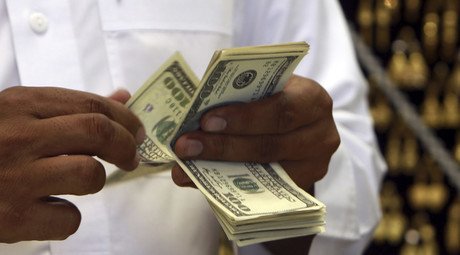Pay inequality between bosses & workers ‘widening’ every year, study shows

Research by the Labour Research Department into the pay packets of the top 350 company boardrooms shows 52 executives were paid at least 100 percent more than last year, showing how pay inequality is widening at a staggering rate.
The analysis shows 535 executives earn over £1 million a year with an annual movement from lower to middle bands as remuneration increased. It shows an average 8.1 percent rise on last year.
Sir Martin Sorrell, chief executive of advertising and PR group WPP, tops the poll once again with a stratospheric remuneration package of £43 million. This included flights for his wife to accompany him on business trips and £50,000 to stay in his own home, a compensation justified by the company’s savings made on hotels.
One other executive had a remuneration package of over £20 million. Tom Pidgley, founder and chief of Berkeley, received £23.3 million, with the vast majority of the package coming from a long-term performance bonus.
The statistics highlight the worrying lack of influence shareholders have on the pay packets of company executives. The issue remains despite former Business Secretary Vince Cable’s regulations which sought to give shareholders a binding vote on executive pay policy.
However, this vote seemingly plays little more than an advisory role as demonstrated by a failed shareholder revolt at WPP. Over a quarter of investors voted against Sir Sorrell’s enormous pay package but the chief executive refused to pay back any of his £43 million.
In its latest annual PensionsWatch survey, the Trade Union Congress (TUC) unearthed more statistics which highlight the growing inequality in the UK’s top boardrooms.
The top pension payable to an executive is £852,716 annually, which is to be rewarded to Royal Dutch Shell chief executive Ben van Beurden. This equates to £16,400 per week – 141 times the current basic state pension.
Second in the pension poll is Ian King, Chief executive of arms giant BAE systems, who can look forward to £794,973 per year, 131 times the basic state pension.
At a High Pay Centre event in October, former Business Secretary Cable argued that more needed to be done to reign in executive pay. He called on companies to consult the workforce on boardroom pay.
The government has also said it will bring forward plans to make top companies disclose the pay gap with their workers. However, the TUC wants more action and has once again reiterated the need for worker representation on company remuneration committees.














